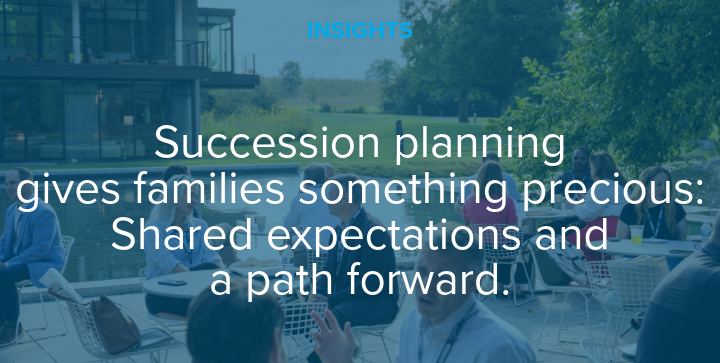
“We just assumed you’d be here.”
That’s what the operations lead said to her founder, after he announced—abruptly—that he was stepping away. There was no handoff. No plan. Just silence, followed by uncertainty.
And while they managed to keep things moving, no one would describe what followed as smooth. Long-standing team members left. Clients began asking questions. Trust wavered.
And at home? His family was just as caught off guard. Plans had to change. Tensions rose. Conversations got hard.
The thing is, it didn’t have to be this way.
Why Succession Planning Feels Hard — and Why It Matters
Many business owners describe succession planning as the task they “should be doing” but never feel ready for. Not because they don’t care—but because it feels deeply personal.
It’s not just an operational handoff. It’s a reflection on legacy, identity, relationships, and the future of what you’ve built.
But when succession planning is delayed, everyone feels it:
- Key team members remain unsure of their future.
- Family members feel left out or unprepared.
- Culture becomes fragile under leadership ambiguity.
- The value of the business itself becomes harder to sustain.
Planning now, even in rough draft form, provides clarity where uncertainty usually grows.
What Succession Planning Actually Looks Like
You don’t need to have every answer to begin. You just need to get honest about what succession means to you—and to those your leadership impacts.
Here are some of the key areas to explore:
- What will change — and when?
Succession isn’t a single date on the calendar. It’s a journey of responsibilities shifting over time. - Who needs to know what?
Clarity is kindness. The more intentional your communication, the more stable your culture becomes. - What happens if something unexpected occurs?
Illness. Family changes. Market shifts. Building contingencies allows others to lead with confidence when life changes quickly. - What will your team—and family—need to feel secure?
Beyond naming names, succession planning includes preparing people for transitions. That includes giving your family peace of mind about what happens to the business, their role in it (or outside of it), and how your legacy continues.
Why This Matters at Home, Too
For many business owners, the business and the family are deeply intertwined—even if family members don’t work there. When a plan isn’t clear:
- Spouses worry about financial stability.
- Adult children wonder what their role should—or shouldn’t—be.
- Heirs inherit decisions they weren’t part of making.
Succession planning gives families something precious: shared expectations and a path forward. It takes unspoken questions off the table and replaces them with transparency, which lowers stress and strengthens trust.
One owner who recently stepped back from day-to-day leadership said the biggest benefit of planning ahead wasn’t what happened at the office. It was how much lighter conversations at home became.
The Peace That Planning Brings
One business owner shared that the moment he created a succession plan—even though he wasn’t planning to step away for years—he felt a weight lift. He could focus on the work he loved, instead of worrying about what might fall apart if he ever had to leave suddenly.
His team noticed the shift, too. They felt trusted, informed, and empowered to grow into leadership. His family noticed it most—because his stress dropped, and he was able to talk more openly about the future.
This is the deeper value of succession planning. Not just operational continuity—but emotional steadiness, for everyone involved.
Want to go deeper?
Join us for Your Business Beyond You: A Succession Workshop, part of the Business Owner Series, on October 16. This hands-on session will help you begin shaping a succession plan with practical tools and reflection, so you can lead your business, team, and family forward with clarity.




